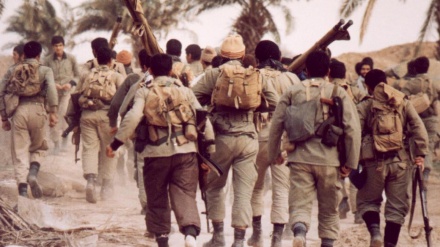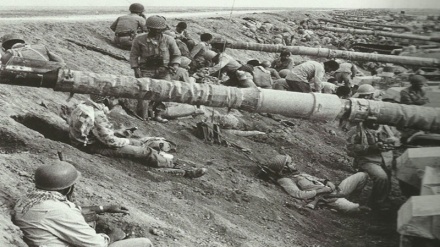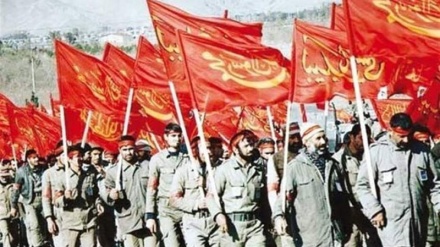Glimpses of Epic of the 8-Year Holy Defense (79)
The retaking of the strategic port of Faw in Southeast of Iraq by the Ba’athist army took place by the direct and indirect support of the Western and Eastern powers. The concentration of Iran’s forces in the West of the country was an extra factor that helped Saddam’s army in this operation.
Then Commander of Islamic Revolution Guards Corps, Major General Mohsen Rezaei, said in the waning months of the war, “With regards to the current conditions, such as recruitment of forces, budget, bogging down of IRGC forces in the counterattack lines, noncompliance of IRGC’s mission with its extension and other factors, it takes one year to be assured of the counterattack lines, and during this period, we will probably get two or three hard blows.”
The fall of Faw to the hand of Saddam empowered the Iraqi army and this victory was paid special attention by analysts and experts. The “Iraqi unexpected assault” surprised some of the Western authorities and pundits as they used to think that Iraq would preserve its defensive stance. Thus, the United States, the Soviet Union and France once again mulled reorganization of the Iraqi Presidential Guard as the main element for changing the situation. Retaking of Faw helped the Iraqi forces to take the initiative in the war. In view of this, the former commander of the Iraqi Presidential Guard said, “Liberation of Faw will change the fate of war.”
The exit of Iraq from the defensive position required Iran to alter its military strategy. With respect to the change of political and field conditions after the retaking of Faw, some of the analysts believed that time would not be to the benefit of Iran. Gary Sake, the aide to then American President Jimmy Carter, maintained that if Iran sees that the continuation of war will really harm the goals of the Islamic Revolution and the survival of the Islamic state, it will try to be rescued from this situation by any means.
While the Iraqi army continued attacking Iran’s positions, there was the likelihood of repetition of invasion into the Iranian soil by the criminal army of Saddam. At that time, Mohsen Rezaei wrote a letter to Imam Khomeini and told him that if Iran wants to continue the war the armed forces should receive broader support. But the economic challenges resulting from obstructionisms in the country, forced the officials, especially the Imam to take decisions to exit from the tough conditions.
Before the retaking of Faw, Americans had intended to set the ground for termination of the war through escorting of Kuwaiti tankers, ratification of UN Security Council Resolution 598 and so on. The gravest problem ahead of the US was Iran’s superior position and stiff resistance. Thus, the Islamic Republic sought to urge the UN to recognize Saddam as the initiator of war, though Washington, as the main emboldener, supporter and accomplice of Saddam, would not abide by this legitimate right and demand. The Faw event, in fact removed some of the barriers on the way of the US to achieve its nefarious objectives in the region through Saddam. Therefore, then American under-Secretary of State, Richard Murphy, expressing pleasure on the fall of Faw to the hand of Saddam, said that the Iraqi victory in the Faw Peninsula might provide a new chance to advance through diplomatic channel. Shirin Hunter of George Town University said that after Iran-Contra (McFarlane), the US policy had changed to 100 percent support for Iraq and escalation of pressure against Iran.
Dear listeners, under new conditions, Iran were concerned about the American interventionist policies on the one hand, and ending the war and recognition of Iraq as the invader on the other hand. But, the American strategists maintained that the overthrow of the Iraqi regime would be tantamount to disturbance of balance in the Persian Gulf and menacing the friends and allies of the US in the region which would ultimately threaten the strategic interests of the West in the region. With the fall of Faw and Iran’s losing of the upper hand in the warfront, the political conditions changed for introducing the Iraqi regime as the initiator of war and invader. Thus, different factors led to the acceptance of UNSC Resolution 598 by Imam Khomeini. Next time, you will hear more on the issue.
RM/SS


